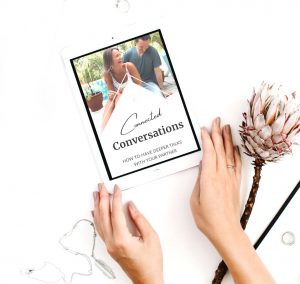There’s a popular quote I think about often in my work, “Men marry women with the hope they will never change. Women marry men with the hope they will change.” Women tend to have the mindset, ‘It can always be better.’ Whereas men more often approach things with the attitude, ‘If it’s not broken, don’t fix it.’
A few years ago, I was working with a couple who seemed to be stuck in a frustrating pattern. The wife, Emily, was always trying to get her husband, John, to be more organized and punctual. She hoped with a bit of prodding, John could become the tidy, time-conscious person she envisioned. John, on the other hand, was more laid-back and had an “If it’s not broken, don’t fix it” attitude.
One evening, Emily decided to try a new approach after reading a relationship book. She asked John, “What is one thing you would like me to guarantee?”
John thought for a moment and said, “That you’ll accept me for who I am and stop trying to change me.”
Emily was taken aback. She had always believed her suggestions were helpful, but now she realized that John felt judged and unaccepted. This was a turning point for Emily. She saw that her constant efforts to change John were creating distance between them.
Have you ever had the experience of someone trying to change you? Where they wanted you to act or speak differently, or to start doing or stop doing something?
How did it feel? What kind of initial response did it provoke in you?
Even those seemingly “helpful suggestions” can leave us feeling judged, not good enough, or even controlled.
The more you insist someone changes, the more resistance you will likely encounter.
Especially for the man in your life. More often than not, it will cause your partner to dig his heels in even deeper, making your efforts completely counterproductive.
The best way to inspire change in those you love is to focus on what you can control in the relationship (yourself and your reactions) and to love and inspire them in a way that makes them want to step up and be their best selves.










